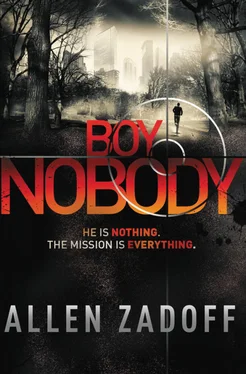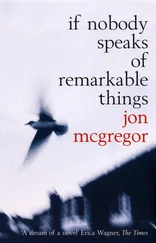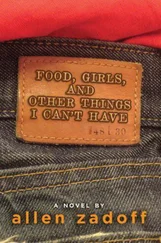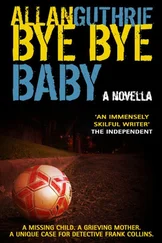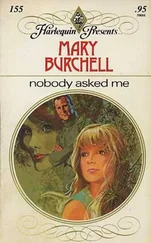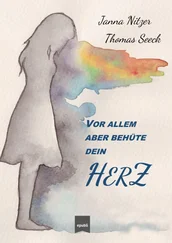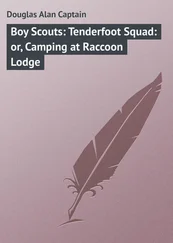I look at my naked body in the mirror.
When I’m dressed, I’m average in all ways.
Naked, my body tells a different story.
There is the physique. But that can be explained by high school athletics. Most of the time I keep five extra pounds on me to camouflage my muscles.
The problem with being naked is the scar. It’s an ugly gash, hard with scar tissue, located on my left pec in the meat between my chest and shoulder.
A knife wound.
I touch it now, explore the region of dead flesh with my fingers.
Mother calls bad experiences teachable moments . Life lessons.
I had a teachable moment that left its mark on me forever. I learned a lot from this particular one. I learned that facing a person with a knife focuses the mind, even more so when he is pressing the knife into your chest, two inches of the blade disappearing into your flesh.
I learned that Mike was capable of anything.
You learn many things with a knife in your shoulder.
You learn how to save your life. Or how to die.
But that’s what it means to be a soldier. You train for situations like that, and you hope that when they arrive—if they arrive—you will be ready.
THE FIRST TWO YEARS IN THE PROGRAM WERE PREPARATION.
Two years to change me from a boy into something else. Human alchemy as practiced by The Program.
At first I fought the transformation. Then I went with it.
My initial impulse to die went away quickly. Nobody really wants to die. It’s unnatural. What I was really experiencing was shock. My parents’ death, my betrayal by Mike, my captivity with strangers.
When the shock passed, my desire to die was replaced by a more natural instinct.
The desire to live.
I threw myself into the training.
There were no other kids training with me. There were only me and a group of professionals. All of them adults.
An entire program created for me, or so it seemed at the time.
I felt special.
Father coordinated. Mother appeared at intervals to check my progress.
There were academics. All of high school and beyond in less than two years.
There was physical training. Weapons and tactics.
There were strategy and psychology.
And there were tests. Many, many tests. Not the kind an average kid has to take. Tests of my courage, my stamina, my fighting skills, my ability to adjust to surprise.
These were the kinds of tests that are graded Pass/Fail. And Fail in The Program means you do not walk away.
When they deemed me ready, there was an explanation of my new job.
Only they didn’t call it a job. They called it a mission.
I am a patriot. That’s what I was told.
As such, my only true job is allegiance to The Program, which gave me life, and to the country I serve.
There may be more like me. Teens hidden in schools across the land, doing what I do. Getting close. Then completing their assignments.
If they exist, I’ve not met them.
There’s only one other like me, as far as I know.
Mike. The boy who killed my parents.
The boy I had to fight in order to graduate.
I RUN MY FINGER OVER THE HARD RIDGE OF THE SCAR.
Remembering Mike, my brother in The Program. And hating him.
I tell myself I was unskilled then. Not unskilled, exactly, but inexperienced.
Not like today.
Today it would be different.
But even then I learned the lesson:
Survive.
I flip on the television in the hotel room, reaching for some distraction.
This is the problem with waiting. Time to think, time to remember. It’s not helpful to me.
I scan the local news.
Somewhere in Massachusetts, an important Chinese businessman had a heart attack. It makes the regional news down in Providence.
I watch a news cycle on CNN. It does not make national.
The lead story is about the new peace initiative in the Middle East, threatened yet again by violence. The Israeli prime minister and his government are seeking a lasting peace in the region, but elements in his own government are opposing the idea. Shots of a rubble-strewn street in Jerusalem, the blast where a bomb has destroyed a storefront. The Israeli prime minister, well known for his moderate views, begging for calm.
I change over to MTV.
A show about teen dating.
It’s supposed to be a reality show, but it is not. I can see that the people are lying. They have memorized their lines.
This is what I’ve been taught:
If you want to know if someone is lying, turn down the volume. In real life that means stop listening to what they’re saying and watch their actions.
People will say anything. But the things they do—that’s the real tell.
I turn down the volume on the television.
I look at the teens on the show, all smiles and white teeth, mouths opening and closing in a pantomime of love.
I think about my father. Not the man whose e-mail I wait for. My real father.
I think of him coming home from work when I was a boy. What he wore, the briefcase he carried. I think of the day he brought me to work at the University of Rochester and introduced me to his colleagues.
I was young then. I trusted. I believed.
No more.
Questionable loyalty . That’s what Mother told me when I got to The Program. I asked her why I had been brought there, and she said, “Your father had questionable loyalty.”
She said it like it was damning, like my father had wavered in his allegiance. To what or whom, I don’t know.
In my memory, I turn down the volume and I watch my father at the university. I see him speaking to his colleagues, his mouth moving, no sound coming. I watch as he introduces me. I look into his eyes. I watch as he passes a security card through a locked door and brings me into the research lab. I remember how important I felt, how lucky to be in this place where no guests are allowed. My father was special. He had privileges.
I scan his office. I try to understand who he was and what he was doing.
If not a professor, then what?
If not a research scientist, then what?
If not a good man, then what?
I run the scene again and again in my mind, but I don’t find anything questionable.
Only my father, telling the truth in the month before he died.
THREE DAYS PASS.
Three long days in Providence. I sleep, I work out, I go to the movies alone.
Mostly, I wait.
I do not establish patterns, and I make no friends.
It’s Tuesday morning when a chime wakes me from a restless sleep.
I roll over and check my phone.
An e-mail from The Program.
Check out this video. Funny!!!
Dad
Funny. Three exclamation marks.
That’s code for an urgent communication. I remember this from my operational training, but it’s never been used before.
Something critical needs my attention. A new assignment.
It is beginning again.
At last.
I ORDER A LARGE COFFEE AT THE LOCAL STARBUCKS.
“You want to add a shot to that?” the barista says.
“Why do you ask?”
“You look like a man on a mission. A little pick-me-up couldn’t hurt.”
I look at the barista, monitoring his face for anything out of the ordinary that would suggest he knows who I am. If need be, I could leap over the counter and be on him in an instant.
“It’s just a shot,” he says. “What doesn’t kill you makes you stronger.”
He smiles. I smile.
I can see now that he’s harmless. I’m misreading the situation. Maybe the Chinese spies shook me up a little. Or maybe it’s the waiting. No matter. I’ve got business to attend to.
Читать дальше
